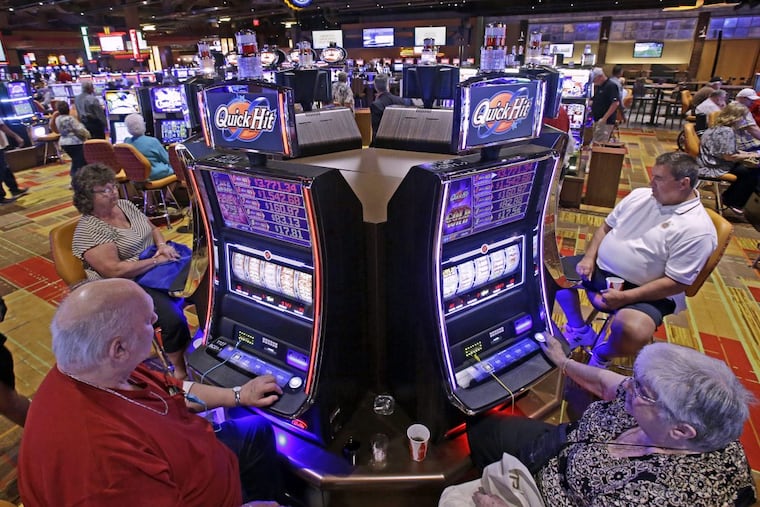PA. Gambling expansion is a losing bet. | Editorial
Expanding gaming does not answer to public demand for more venues to gamble. In fact, the cannibalization of existing casinos is almost sure to put a dent in overall revenue collection.

A bill that should be on the governor's desk for a signature but isn't: changing the state's official slogan to "Welcome to Pennsylvania: It's Las Vegas with hunting."
After months of dithering, Pennsylvania lawmakers finally resolved the state budget impasse recently by approving, among other things, a major expansion of gambling that by some measures out-Vegases Vegas. We're already second in the country for revenue from commercial casinos.
This is part of a newly expanded reliance on sin taxes to pay the bills. According to a recent Inquirer report, taxes on vice-related activity (smoking, drinking, gambling) accounted for more than 6 percent of the state's income in the last fiscal year.
But the scope of the expansion of gambling is breathtaking: It will allow for 10 additional small "satellite casinos" that can be located in areas outside of 25 miles from one of the state's existing 12 casinos. (Except for one notable exception, the Mount Airy Casino Resort, which got a special break to extend that barrier to 75 miles.) The law will allow internet gaming, airport gaming tablets, video gaming terminals at truck stops, and sports fantasy games.
The state Gaming Control Board will add these activities to its regulatory duties, though there are no immediate plans to expand that agency.
These new venues and opportunities for people to lose money are expected to bring in $200 million, at least in the first year, with fees and licenses.
Expanding gaming does not answer any public demand for more venues to gamble. In fact, the cannibalization of existing casinos is almost sure to put a dent in overall revenue collection.
Solving a budget crisis on "sin taxes" takes advantage of people who can ill afford it. It's a cheap band-aid that allows lawmakers to avoid doing the hard work of grappling with real solutions.
The state's voracious need for gaming money will never, ever be satisfied. Consider: Since gaming was introduced, revenue has expanded from more than $454 million in fiscal year 2006-07 to more than $28 billion a year. The lion's share is distributed to a variety of places, like the horse racing industry ($2.5 billion to date), economic development ($1.1 billion to date), property tax-payers (wage-tax payers in Philadelphia; $7.8 billion to date).
How could this state have generated new revenue of nearly $2.4 billion a year in the last 10 years but still can't craft a budget that doesn't end in panic and chaos at the end of each year? This year, lawmakers decided to solve the budget dilemma by borrowing.
This has to be one of the most massive examples of political incompetence in history. At the very least, why not revise the way the current revenue pie is sliced? For example, how do we justify giving $2.5 billion to the horse racing industry – an industry that continues to decline?
At a time that job creation and strong economic development should be leading all action in Harrisburg, we'll be installing hundreds of machines that will require few jobs, and be relying on people's losses to succeed.
Maybe the new state slogan should be: "Pennsylvania: Don't bet on it."